
The Technische Universität Braunschweig, commonly referred to as TU Braunschweig, is the oldest Technische Universität in Germany. It was founded in 1745 as Collegium Carolinum and is a member of TU9, an incorporated society of the most renowned and largest German institutes of technology. It is commonly ranked among the top universities for engineering in Germany. TU Braunschweig’s research profile is very interdisciplinary, but with a focus on aeronautics, vehicle engineering including autonomous driving and electric mobility, manufacturing, life sciences, and metrology. Research is conducted in close collaboration with external organizations such as the German Aerospace Center, Helmholtz Centre for Infection Research, several Fraunhofer Institutes, and Germany's national metrology institute (PTB), among many others. As one of very few research institutions of its type in the world, the university has its own research airport.
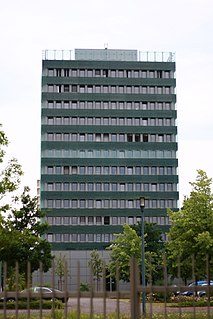
The Federal Ministry for Food and Agriculture, abbreviated BMEL, is a cabinet-level ministry of the Federal Republic of Germany. Its primary headquarters are located in Bonn with a secondary office in Berlin. From 1949 to 2001 it was known as the Ministry for Food, Agriculture and Forests. Through an organizational order by the German Chancellor on 22 January 2001, it became the Federal Ministry for Consumer Protection, Food and Agriculture after the Consumer protection function was transferred from the Federal Ministry for Health. The name Federal Ministry for Food, Agriculture and Consumer Protection was adopted on 22 November 2005 simply to alphabetize its functional parts in the German language.

Wrocław University of Environmental and Life Sciences – a public higher education institution founded in 1951. One of the best career-oriented universities in Poland, it ranks as the country’s second biggest patent licensor as well as the second best life-sciences and agricultural university.
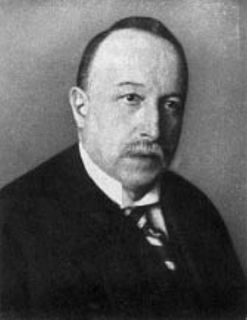
Georg Bredig was a German physical chemist.
Ulf Hohmann is a German ethologist, whose studies about the raccoon have played a significant role in the understanding of its social behavior and its distribution in Germany.
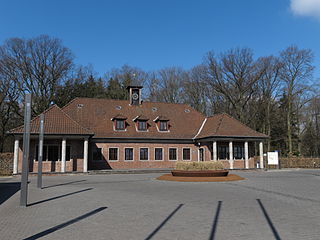
The Federal Agricultural Research Center (FAL), headquartered in Braunschweig, was a federal authority of the Federal Ministry of Food, Agriculture and Consumer Protection. On January 1, 2008, FAL was split into the Johann Heinrich von Thünen Institute, the Julius Kuehn Institute and the Friedrich Loeffler Institute.

The Kaldenkirchen Sequoia Farm is a German arboretum that has been used as a biological institute for many years. Part of the protected area in the city of Nettetal, it is situated in the "Kaldenkirchen Grenzwald". Nettetal lies in the Lower Rhine region of Germany.
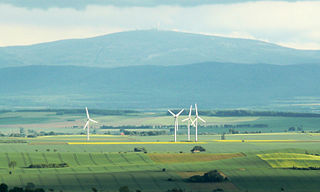
Brunswick Land is a historical region in the Southeast of the German state of Lower Saxony, centred around the city of Braunschweig. It refers to the core territory of the historic Duchy of Brunswick and its successor, the Free State of Brunswick, which was disestablished in 1946.
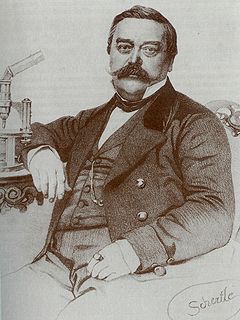
Theodor Hartig was a German forestry biologist and botanist.
The Hochschule für Musik Mainz is a university of music, part of the Johannes Gutenberg University of Mainz. It is the only such institution in the German state of Rhineland-Palatinate.
Friedrich Carl Louis Otto Appel was a German botanist and agriculturalist.
Gottfried Landwehr was a German physicist.
Rudolf Ferdinand Theodor Aderhold was a German mycologist and pomologist.
Uwe Ludewig is a German agricultural scientist specialising in plant physiology. He is director of the Institute for Crop Science at the University of Hohenheim.
Falko Feldmann is a German biologist and practitioner of phytomedicine. He is coordinator of matters concerning approval and registration of active substances and agents for plant protection, including international cooperation on questions about European Plant Protection Laws. He also holds the post of Director of the Deutschen Phytomedizinischen Gesellschaft e.V. and is involved in a number of organisations and committees relevant to plant protection.
Johannes Hallmann is a German agricultural scientist of phytomedicine. He is a scientific adviser at the Julius Kühn-Institut, the Federal Research Institute for Cultivated Plants, the Institute for Epidemiology and Pathogen Diagnostics in Münster, the University Professor for Nematology and the President of the German Phytomedicine Society.
Kornelia Smalla is a chemist and biotechnologist at the Julius Kuehn Institute (JKI) in Braunschweig and a university lecturer in microbiology at the Technical University of Braunschweig.
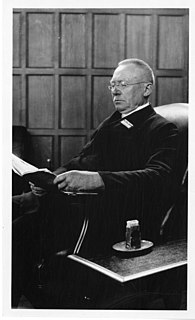
Max Hollrung was a German botanist, and an early specialist in phytopathology. He was the first university teacher in Germany to be appointed to teach on the subject of plant diseases and plant protection at a university. The standard author abbreviation Hollrung is used to indicate this person as the author when citing a botanical name.













